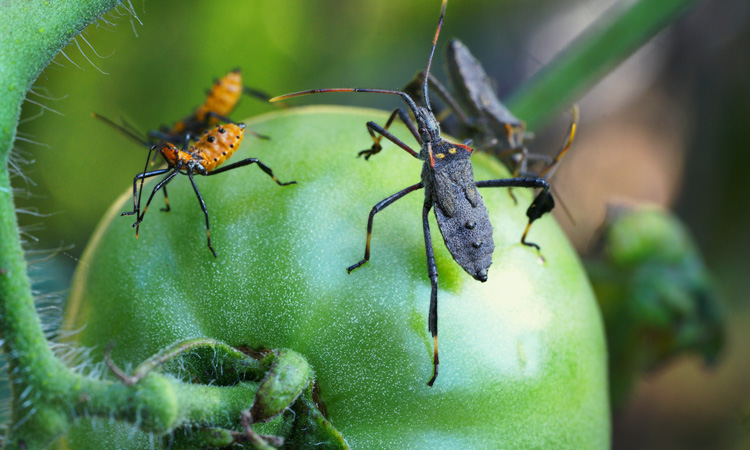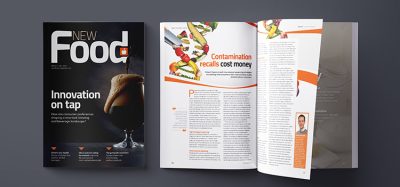Study evaluates economic impact of insect pest management
- Like
- Digg
- Del
- Tumblr
- VKontakte
- Buffer
- Love This
- Odnoklassniki
- Meneame
- Blogger
- Amazon
- Yahoo Mail
- Gmail
- AOL
- Newsvine
- HackerNews
- Evernote
- MySpace
- Mail.ru
- Viadeo
- Line
- Comments
- Yummly
- SMS
- Viber
- Telegram
- Subscribe
- Skype
- Facebook Messenger
- Kakao
- LiveJournal
- Yammer
- Edgar
- Fintel
- Mix
- Instapaper
- Copy Link
Posted: 3 March 2020 | Sam Mehmet (New Food) | 1 comment
Researchers from Mississippi State University have evaluated aspects such as pesticide cost, labour, time and economic return in order to determine the cost-effectiveness of insect pest management strategies.


A study from Mississippi State University has evaluated the impact insect pest management strategies have on the economic return of small-scale tomato production.
Ronald Stephenson and a team of researchers scrutinised strategies including management based on a calendar spray schedule, conventional pesticide management based on action thresholds, and management based on action thresholds using organic controls in order to better determine the effects of these strategies on economic return for growers of tomatoes.
Due to difficulty in monitoring insect pests, applications of insecticides are frequently conducted on a calendar schedule. However, seasonal variability in pest populations leads to these calendar schedules being inefficient, according to the researchers. Improperly timed pesticide applications are said to be both expensive and may worsen problems by affecting beneficial insect species without effectively controlling target pests.
Concern regarding impacts of pesticides on the environment and human health has led to the development of integrated pest management (IPM) programmes. A component of these programmes involves the use of observation of pest populations in the field to direct timing of pesticide applications. Central to the concept of IPM is the use of an economic threshold of a population level where an application of a pesticide is advisable.
IPM programmes have been widely successful in reducing pesticide use increasing profitability for growers, but action thresholds have been developed as levels of pest density that result in loss of crop quantity or quality, the researchers explained.
Threshold-based insect management strategies, including use of thresholds with conventional pesticides and with use of organic pesticides only, were compared with a conventional calendar approach for yield, management cost, and production value of tomatoes.
To evaluate economic benefit of management strategies, cost of inputs related to insect pest management were recorded. Cost of all pesticide treatments was calculated by measuring volume of pesticides applied. The amount of time involved in insect sampling and applying pesticides was recorded and labour cost was calculated and insect management strategies were evaluated for their impact on yield, management cost, and economic return for small-scale tomato production in Mississippi.
These factors were compared for spring and autumn seasons during two production years. Greatest total and marketable yields were obtained for use of conventional pesticides according to action thresholds.
Findings include:
- Use of organic insecticides according to thresholds did not affect yields in comparison with a calendar-based approach
- Proportion of fruit rated unmarketable was greater with the use of organic insecticides due to reduced efficacy and residual of control
- Production costs for the organic threshold-based approach proved greater due to an increased number of insecticide applications required
- Economic return for both conventional and organic threshold-based insect pest management was greater than for the conventional calendar method
- Increased economic return for conventional threshold-based management was due to increased yields
- Increase in return for organic threshold management was based on premiums received for organically grown tomatoes
- Adoption of conventional threshold-based insect pest management by small-scale producers has the potential to increase production efficiency and value, as well as increase environmental sustainability of production
- Economic feasibility of organic production requires access to markets willing to pay significant premiums for organic produce
- Price premiums for organic tomatoes were sufficient to result in greater economic return in comparison with calendar-based management, although the effect of increased price was partially counteracted by increased cost of organic insect pest management.
“Adoption of threshold-based insect pest management strategies has the potential to increase profits for small-scale producers, while also reducing the amount of pesticides applied. Insect pest management is one part of the overall picture for sustainability and further work will allow us to identify other practices that will benefit vegetable producers,” Stephenson said.










Thanks for this awesome post. A pest species can be any species that humans consider undesirable. Any organism that reduces the availability, quality, or value of a human resource can be classified as a pest. This designation in no way reflects the organism’s role in the natural ecosystem but is more an indicator that they are in conflict with humans. Plant pests, also referred to as weeds.